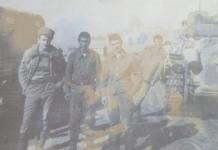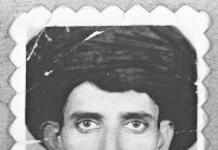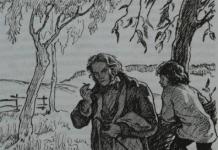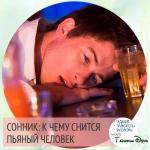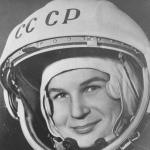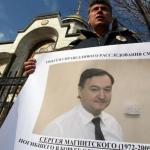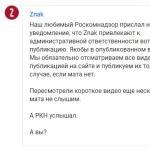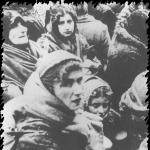The events described by Bondarchuk in The Ninth Company, although they actually happened, were still exaggerated and concentrated in a cinematic way. In real life, the heroism of Afghan soldiers was an everyday, almost commonplace thing, and death could strike at any moment, so they didn’t talk about it and tried not to think about it.
Shakhtinsk resident Vladimir Nikolaev, like most of his comrades in arms, does not like to talk about that war. But the round date - the 80th anniversary of the Airborne Forces - gave reason for memories.
Vladimir served in the legendary 345th separate Guards Parachute Regiment, the same one from which eight Heroes of the Soviet Union came. Today, only three people live in the Karaganda region who served in one of the most belligerent units of the Limited Contingent of Soviet Troops in Afghanistan. The 345th Regiment carried out a combat mission on Afghan soil for nine years and two months. Between 1980 and 1989, he participated in more than 240 combat operations - that's more than 1,500 days of continuous war. It was the 345th Airborne Regiment that “closed” the Afghan war, ensuring the withdrawal of Soviet troops from Afghanistan. And the last Soviet soldier who died in Afghanistan was from that same 345th. Shooter Igor Lyakhovich died while crossing Salang. The “spirits” shot him from cover and quickly left. There was no skirmish as such, there was a sortie. Our hero knew him well - the guy served in a neighboring company...
It is the 345th regiment, one of its units, that becomes the hero of Bondarchuk’s film about the ninth company, although the film describes only one small episode from the chronicle of the Afghan war. Few people know that the war did not end for most paratroopers with the withdrawal from Afghanistan. For many, there were no less hot and dangerous spots ahead.
“If we compare our real life with the “Ninth Company”, then for me it all started almost like in a film - training in Fergana was filmed almost as a documentary. And jogging with a 15-kilogram stone in my hands, and mountain training, and exhausting forced marches in the heat , night shooting - everything is real, everything is like in life."
“Of course, there was no “Snow White” public girlfriend invented by the director,” laughs Vladimir.

“We, eighteen-year-old boys, were so exhausted that there was no time for it, we fell from fatigue, where there was the slightest respite, and fell asleep. We parachuted from everything we could jump from - from An-2, An-12, from IL-76, from different helicopters, and fired from everything that could shoot. And we, the communications company, also ran and jumped with a 15-kilogram radio station on our shoulders. But then, in Afghanistan, we understood why they were driving us like that. It was just a rehearsal, brutal training gave us strength and, most importantly, real airborne brotherhood was forged there, the ability to stick to our own and help each other.”
“So six months flew by, and then they took us to the airfield, flew out and landed in Kabul. From there, the “boards” flew to Bagram only late at night, and we had to wait in Kabul for our turn for five days. Without water and food, restless, in the heat under forty degrees. And when we finally arrived at the regiment, the “grandfathers” also kicked us in the neck: why were we so late, it’s time for us to go home long ago! everyday combat began. Our regiment was stationed in Bagram, next to the airfield, we guarded it, ensuring security. On the other side of our base there was a village where they were regularly shooting. 70 degrees. And the dust was like cement. The Ferghana weather seemed just like flowers. At first we lay flat, with a fever, with our bellies swollen from the water - we still couldn’t get enough water. Then we got used to it, acclimatized, and in some Afghan way. “In science, in the field kitchen we were constantly brewed camel thorn instead of tea - the bitter and astringent drink perfectly quenches thirst.”

“By the way, the famous episode in the film, where a huge, fully packed IL-76 with demobilization explodes, actually ended with much less bloodshed. Although everything could have happened exactly the same. In the fall of 1987, on the long-awaited day of departure, the regiment saw off their demobilized guys were ready to suffer in the cramped conditions of the plane, packed to capacity, just to get home faster. The engine roared, the board took off from the takeoff, and, as always, gaining altitude, it passed over our regiment. We wave after him. But he didn’t manage to go up high - a white trail from the “stinger” flashed from the “green” to the plane. The wing of the plane flared up. The turbines roared and the plane careened towards the mountains. From there, an explosion was heard. , we were sure that the “pot-bellied cow,” as we called the Il-76, exploded. But it turned out that the demobilization was saved by a happy accident, and another plane took the blow - an empty An-12, on which a member had just arrived and landed on the ground. military council from the headquarters of the Airborne Forces! This An-12, ignoring instructions, came out from the side runway and, brazenly not allowing the Il-76 to pass, went into the sky from halfway through the takeoff. A sort of aerial reckless driver. It was he who took the blow, saving the lives of more than one hundred demobilizers and civilian specialists who were supposed to fly to the Union. The “spirits” knew that a large transfer of those discharged to the reserve was being prepared, and they wanted to commit an act of retaliation. And it was only by luck that they did not succeed. But this episode, artistically imagined by Bondarchuk, fit perfectly into the film."
“In Bagram I no longer had to jump with a parachute; there a parachutist is an easy target, although you fly to the ground for only two or three minutes. Our job was to track the movement of the caravans, to divert fire from the airfield. “Make some noise” somewhere,” cause fire on yourself in order to ensure safe movement for others. By the way, Bondarchuk “got it wrong” with small household items - his “combat” fighters sleep on beds - this is a fiction!

“In February 1989, the withdrawal of Soviet troops from Afghanistan began. The road went through the high-mountainous Salang pass - there is no other road from there. A mountain serpentine and several kilometers of concrete tunnel that was cut through the rock. Our Soviet specialists once cut it for the friendly Afghan people. I still can’t believe that we came out of there... And with such relatively small losses, it could have been much worse. In 1980, a convoy of cars stopped in the tunnel due to the stalled engine of one of them, and 16 fighters suffocated in carbon monoxide. gas accumulated in the stone sack of the tunnel... Something similar could have happened then, in February 1989. But in order.”
“Our regiment was the last to leave Afghanistan, we ensured a safe retreat for the columns. It so happened that our 50 soldiers were the last, the last, and I was among them. We fell far behind - we were catching up with our own because there was an unexpected delay. “Flyers” from the airfield We had already withdrawn, we handed over the territory of the regiment to the “greens” - the friendly Afghan army was quite unhappy - there were not a soul around the mountains, everyone had already gone far away, and we, a bunch of 50 people, were in the middle of a foreign, cruel, hostile country. It was simply felt physically, through your skin, that you were alone among the hostile rocks. Moreover, a very unpleasant incident occurred the day before, which did not add to the love for us on the part of the Afghans. When the troops were leaving, the airfield staff got scared and demanded their weapons. "warriors", frightened by the visits of the locals, started shooting indiscriminately and accidentally killed a 12-year-old Afghan boy from a neighboring village. The matter could have ended sadly, and this was at the very end of the war. But the leadership of both sides managed to come to an agreement, and the withdrawal from the airfield continued, everyone was taken out, except us. It was in this tense situation that our 50 people remained. But we are a landing party, and even 50 people are strong. We could do a lot. And we would not have sold our lives cheaply, but, fortunately, there was no bloodshed. And we moved in tanks in pursuit. It was very cold in the mountains, there were snowstorms, it was impossible to ride on armor, although we were dressed for the season, we were stiff. When we climbed Salang, our people were already there. In the tunnel, the column stalled, a sabotage - the path was blocked. Many people could suffocate from carbon monoxide. We walked as cover, from behind, and were already riding in an armored personnel carrier. I had to go down the serpentine road. Shoot. In general, we did it. The attempt to detain the convoy failed. For that combat episode I received a medal "For Courage".

“And I still remember. When we had already caught up with our people standing at the pass, they boiled water for us to warm up. It got dark. There were no containers - they took zinc from tracer cartridges, cut them, poured water into them. They warmed themselves on the fire and suddenly they start... shooting. It turned out that the zinc was released from the cartridges carelessly and they began to explode. Again, I was lucky - God saved me from getting a single wound throughout the whole of Afghanistan.”
“From Afghanistan our path lay in Kirovabad, where an ethnic conflict flared up between Armenians and Azerbaijanis. A hot spot appeared - Nagorno-Karabakh. We entered Kirovabad when the pogroms had already been stopped and a curfew was introduced in the city.”
“Fate turned out to be such that immediately after Azerbaijan, in April, we were sent to Tbilisi. There the landing party had to take part in establishing order. The angry crowd then trampled their own people, and ours were accused of cruelty, although we used neither weapons nor even shields then they had no right. The rebellion was extinguished, relative order was established in the city. But we left from there under escort - escort was necessary in order to avoid revenge from the extremists...”

Returning to his hometown, Vladimir went to serve in emergency situations, to fight fires. Now Vladimir is retired. In Kazakhstan, it is not customary to swim in fountains on Airborne Forces Day, August 2, as in Russia. And Airborne Forces Day itself is not included in the list of holidays. But every year, veterans put on blue berets and gather in the park to remember past glory and remember friends who died in various military conflicts of the 20th century.
Photos provided by the hero of the publication.
AIR LANDING FORCES IN AFGHANISTAN- in accordance with the directive of the Ministry of Defense and the General Staff of the USSR Armed Forces, 12/25/1979 15.00 BTA aircraft from the 103rd Airborne Division (comr. Gen. I.F. Ryabchenko) and the 345th airborne division (comr. p/p-k N.I. Serdyukov) entered the air. space of the DRA and in two columns headed to the designated landing sites. The 56th airborne brigade (com-r/p-k A.P. Plokhikh) began to march to the territory of a neighboring state.
The landing was carried out by landing at the airfields of Kabul and Bagram. The landing and takeoff conditions of these two closely located airfields determined the need to land the group. 6-12 aircraft each. For landing, unloading and takeoff gr. allocated approx. 1 hour. To solve unforeseen problems, it was envisaged to drop a parachute directly onto the airfields one by one, but the situation did not require such use. The front units that ensured the landing prevented the unauthorized attack. rise afg. airplanes and helicopters, creating favorable conditions. conditions for landing ch. landing forces. Equipment and cargo were unloaded from the aircraft as they landed within 15-30 minutes. BMD and vehicles were unloaded from St. progress and concentrated at designated points. Material resources and military. the property was unloaded from the aircraft onto the ground 40-50 m from the taxiways and then transported to storage areas in the designated areas where the units were located.
Upon completion of the landing, the units concentrated at their destination. districts where they were given b. tasks. Basically this is: blocking of government, institutions, military units loyal to X. Amin, important objects both in Kabul and near it. After landing at the airfields, the commanders of units and subunits received plans of the city and maps with a graphically plotted task and, briefly, a note. These documents were prepared in advance by the OG of the Airborne Forces headquarters. Two days later, the situation in the capital sharply worsened due to the intensification of the opposition, which offered armed resistance. In this situation, special responsibility fell on the shoulders of the 103rd Airborne Division. It included the following PDPs: 317th (com-rp sub-kal N.V. Batyukov) 350th (com-rp p/p-k G.I. Shpak), 357th (com-rp p/p-k G.I. Shpak) p/p-k K.G. Litovchik). Execution b. tasks were assigned to reinforced infantry fighting vehicles.
Advancement to objects located in the city was carried out along the shortest routes. When approaching objects, if the situation allowed, they usually acted from two directions. The paratroopers quickly dismounted, burst into the building through doors and windows and disarmed the guards. Foci of resistance were suppressed by rifle fire. weapons and grenades. Strongly fortified buildings were first blocked, then Ch. B-nov forces, using hidden approaches to the object, attacked and captured it. Part of the forces and forces were allocated for cover. Carrying out the task of blocking the military unit, one of the 103rd Airborne Division's airborne troops, having carried out a night raid, went to the unit's location and with decisive actions prevented the AfG from advancing. troops. Infantry headquarters, divisions and brigades, barracks, and park b were taken under control. cars and tanks, fuel and lubricants warehouse. Paratrooper units, suppressing pockets of resistance, were forced to cease fire and surrender their weapons. When performing the initial tasks, the infantry divisions made full use of the factor of surprise and, given the general balance of forces not in favor of the landing party, successfully conducted a frontal assault. Control at that time was carried out by radio where those allowed. Wed, closed.
From the first days of arrival in Afghanistan, units and subunits of the Airborne Forces began arranging their locations. Bases were equipped to accommodate personnel. camps. All of them were included in the defense system of airfields located near them. During the special operation The tasks of the units and divisions of the Airborne Forces were: assisting the DRA government in the protection and defense of important facilities, destroying illegal armed groups and covering the state. borders. B.d. were carried out, as a rule, together with parts of the AfG. army, people's militia, detachments of defenders of the revolution. Har-R b.d. formations of dushmans determined the use of special forces by troops, methods of dealing with them. Naib, the following were effective: raid actions; blocking areas with placenta, destruction of illegal armed groups; simultaneous strikes on several. gr-kam; destruction of small groups and blocking the paths of their movement tactically. air landings; ambushes on the routes of movement of the pr-ka; destruction of small gr. pr-ka duty. divisions in areas of responsibility, etc.
Over the years of the special operation of St. 24 thousand paratroopers were marked by the state. awards, and 17 people. awarded the title of GSS: ml. s-t Alexandrov Vyacheslav Aleksandrovich (28.6.1988, posthumously), p/p-k Vostrotin Valery Alexandrovich (6.1.1988), Mr. General Grachev Pavel Sergeevich (5.5.1988), senior l-t Zadorozhny Vladimir Vladimirovich (25.10.1985, see), st. Israfilov Abas Islamovich (12/26/1990, see), ef-r Koryavin Alexander Vladimirovich (10/25/1985, see), candidate Kravchenko Nikolai Vasilievich (September 27, 1984), p/p Kuznetsov Yuri Viktorovich (5.7.1982), row. Melnikov Andrey Alexandrovich (28.6.1988, see), senior. s-t Mironenko Alexander Grigorievich (28.4.1980, see), Mr. Pimenov Vasily Vasilievich (13.6.1984), Mr. General Slyusar Albert Evdokimovich (11/15/1983), Mr. Soluyanov Alexander Petrovich (11/23/1984), senior. s-t Chepik Nikolai Petrovich (24.4.1980, see), senior. l-t Chernozhukov Alexander Viktorovich (3.3.1983), row. Chmurov Igor Vladimirovich (26.5.1986), Mr. Yurasov Oleg Alexandrovich (10.4.1989, see) (see. relevant personalities).
1979
December 12 - The Central Committee of the Communist Party of the Soviet Union decided to send a limited contingent of Soviet troops to Afghanistan. It was justified by the request of the Afghan leadership and the situation in and around Afghanistan.
December 14 – two parachute battalions and an artillery battalion of the 345th separate airborne regiment of the Airborne Forces were transferred by landing to Bagram (Afghanistan).
December 23 – an airborne task force arrived in Kabul, headed by deputy commander of the troops, Lieutenant General N.N. Guskov.
December 24 – Minister of Defense of the USSR, Marshal of the Soviet Union D.F. Ustinov held a meeting with the participation of his deputies, commanders-in-chief of the Ground Forces, Air Force, Airborne Forces, and Air Defense Forces. At the meeting, the minister announced the decision taken by the leadership to send troops to Afghanistan and signed the corresponding directive.
Scheme of the entry and deployment of Soviet troops in Afghanistan.
December 25 - the battalion of the 56th Air Assault Brigade under the command of Captain L.V. Khabarov made a rapid march in armored vehicles from Hairatan to the Salang Pass and took it under guard.
December 25–26 - military transport aircraft with personnel and military equipment of the 103rd Airborne Division and a battalion of the 345th separate parachute regiment crossed the Soviet-Afghan border and landed at the airfields of Kabul and Bagram.
December 27 – the forces of the 103rd Airborne Division and the 345th Separate Parachute Regiment took control of government institutions and the military garrison of the Afghan army in Kabul and Bagram. The 9th company of the 345th regiment, together with special forces of the KGB and GRU, participated in the assault on the Taj Bek Palace, the residence of the Afghan dictator Kh. Amin.
1980
January-February - the concentration of the Airborne Forces group within the Limited Contingent of Soviet Forces in Afghanistan was completed. It included: the 103rd Airborne Division consisting of the 317th, 350th and 357th Parachute Regiments (commander - Major General I.F. Ryabchenko); 345th Separate Parachute Regiment (commander - Lieutenant Colonel N.I. Serdyukov). The 40th Army included the 56th Separate Air Assault Brigade (commanded by Lieutenant Colonel A.P. Plokhikh).
April 1 – The First Panjshir Operation against Ahmad Shah Massoud began. Units of the 56th Air Assault Brigade and the 345th Separate Parachute Regiment took part in it. The factor of surprise and unpreparedness of the Mujahideen for an open clash, as well as the bold and decisive actions of the battalion of Captain L. V. Khabarov, played a large role in the success of this operation.

At a rest stop.
April 28 - for courage and heroism shown in battle, senior sergeants G.A. Mironenko and N.P. Chepik was awarded the title of Hero of the Soviet Union (posthumously). They were the first among the paratroopers of the Airborne Forces group in Afghanistan to receive this high award. Captain S.P. also received the title of Hero of the Soviet Union. Kozlov (56th Air Assault Brigade).
July 24 - The 103rd Airborne Division was awarded the Order of Lenin, the 345th Separate Parachute Regiment was awarded the Order of the Red Star.
1981
July - participation of units of the 103rd Airborne Division in the operation to destroy the Mujahideen base in the Lurkoh mountain range.
1982
January - two battalions of the 103rd Airborne Division participate in the defeat of the rebel base area near the village of Darzab (Faryab province).
April - participation of a battalion of the 103rd Airborne Division in the operation to destroy the Rabati-Jali base on the border with Iran.
Summer - participation of units of the 103rd Airborne Division in the operation in Panjshir against the armed forces of Ahmad Shah Massoud. The operation was led by Major General N.G. Ter-Grigoryants. The group of Soviet and Afghan government troops amounted to 12 thousand people. A feature of the fighting was the massive landing of paratroopers from helicopters (more than 4 thousand people), which predetermined the success of the entire operation.

Street view of an Afghan city.
1983
February - The 345th separate parachute regiment was awarded the Pennant of the Minister of Defense “For courage and military valor.”
April - participation of paratroopers of the 103rd Airborne Division (three battalions) and the 345th separate parachute regiment (two battalions) in a combat operation in the Nijrab Gorge (Kapisa province). The operation was led by the deputy commander of the 40th Army, Major General L.E. Generals. A total of 21 battalions were involved in the operation.
1984
February 27 - the second stage of the military operation began in the provinces of Parvan, Kapisa, Kabul, Laghman under the leadership of the commander of the 40th Army, Major General L. E. Generalov. Three battalions of the 103rd Airborne Division fought in the Nijrab Gorge.
April 19 - the beginning of a military operation in the Panjshir gorge against a large group of field commander Ahmad Shah Massoud. The fighting began with the landing of a large landing force, which cut off the Mujahideen's retreat into the mountains.
March–June - participation of units of the 103rd Airborne and 56th Airborne Brigades in fierce battles in the Pechdara Gorge.
October - participation of the 345th separate parachute regiment and the 56th air assault brigade in the operation to capture and destroy Mujahideen bases and warehouses in the area of the district center of Urgun (Paktia province). A large number of weapons and ammunition were captured. The operation took place without losses for the Soviet troops.

Column of the Airborne Forces unit.
1985
May - June - participation of units of the 103rd Airborne Division and 56th Airborne Brigade in the operation in Kunar province. The fighting was distinguished by its scope and ferocity along the entire length of the gorge from Jalalabad to Barikota (170 km).
July – large-scale operation codenamed “Desert”. The military operations were led by the commander of the 40th separate army, Lieutenant General I.N. Rodionov. According to the operation plan, on July 16, units of the 345th separate parachute regiment, unexpectedly for the enemy, landed by helicopter in the Mikini gorge, located in the northeastern part of Pandshzher. Having initially shown stubborn resistance to the paratroopers, the Mujahideen, under the threat of encirclement, fled. They left weapons, ammunition, equipment, food and equipment on the battlefield. At the Mujahideen base, paratroopers discovered an underground prison.
October - participation of two airborne battalions in the operation in the Kaklan gorge (Baghlan province).
1986
April - participation of paratroopers in the operation in the Javara area (10 km from the city of Khost). During the fighting, 252 fortified Mujahideen firing positions were destroyed, 6 thousand anti-tank and 12 thousand anti-personnel mines were neutralized and destroyed, hundreds of missiles and missile launchers, thousands of rockets and artillery shells were captured. Over 2 thousand Mujahideen were killed.
August - participation of units of the 345th separate parachute regiment in the defeat of the Kokari-Sharshari rebel base (on the Iranian border).
1987
April 12–24 - participation of the 103rd Airborne Division (three battalions) in Operation Circle (Kabul, Logar provinces).
April 12–24 - participation of the 103rd Airborne Division (three battalions) in Operation Spring (Kabul province).
May 20 – Operation “Salvo” (Logar, Paktia, Kabul provinces). The 103rd Airborne Division (three battalions), the 56th Separate Air Assault Brigade (two battalions), and the 345th Separate Airborne Regiment (two battalions) took part in it.

A group of paratroopers before going on a combat mission in difficult terrain.
1988
January - Operation Magistral, which began in November 1987, involved units of the 103rd Airborne Division, the 56th Separate Air Assault Brigade and the 345th Separate Parachute Regiment. Thanks to skillful and decisive actions, the paratroopers captured the Satykandov pass and destroyed a large Mujahideen base south of the pass. This played a decisive role in the defeat of the enemy and the capture of Khost.
April 12 - May 12 - the 345th separate parachute regiment (commander - Colonel V.A. Vostrotin) carried out a combat mission to escort the columns of the 40th separate army to Kandahar. During the operation, 5 columns were carried out, 8 thousand tons of cargo were transported. The paratroopers inflicted significant damage on the Mujahideen, killed about 100 people, and captured a large number of small arms.
On April 14, the Geneva Agreements were signed between the USSR, the USA and Pakistan. The USSR committed itself to the withdrawal of Soviet troops from Afghanistan, starting on May 15, 1988.
June 23 - July 19 - participation of the 345th separate parachute regiment in combat operations in the Fayzabad area. The regiment's column, having overcome the Salang pass, made an 850-kilometer march and ensured the successful start of the combat operation. The operation took place with minimal losses of personnel and military equipment of the regiment. The enemy lost more than 180 people and a significant part of their military equipment.
July 26 - August 10 - participation of the 345th separate parachute regiment in combing and special mining of the area (Kabul province) to disrupt the actions of the Mujahideen.
September - the 345th separate parachute regiment was given the honorary name “in honor of the 70th anniversary of the Lenin Komsomol.”
1989
January 23 - units of the 345th separate parachute regiment liberated from the Mujahideen and took control of part of the territory adjacent to the strategic Kabul-Hairatan highway, along which on February 11 the regiment crossed the border of the USSR and returned to the Union.

An Airborne Forces column crosses the Soviet-Afghan border. February 1989.
During the ten years of the war in Afghanistan, 17 paratroopers became Heroes of the Soviet Union, more than 24 thousand airborne troops were awarded government awards for their courage and heroism. Airborne units took part in more than 200 planned combat operations against the rebels.
Prepared by I. A. Lyndin.
On December 12, 1979, the Party Central Committee adopted a resolution on the deployment of troops to Afghanistan. Soviet troops were supposed to stand as garrisons and not get involved in internal conflict and hostilities. They were instructed to protect the local population from gangs, as well as distribute food, fuel and basic necessities.
A day before the official document, the Vitebsk division was raised on alarm. Including the 350th Airborne Regiment. Once in a neighboring state, the “fifty kopecks”—as the regiment is called among the fighters—became an active participant in combat operations in Afghanistan.
AiF.ru spoke with soldiers of the regiment, participants in the Afghan war, about life, service and military brotherhood.
Reference:
In 1979 he was a conscript soldier. Now he heads the Kolpino branch of the Union of Disabled Persons and Veterans of Afghanistan and Chechnya.
In 1983-1985 he was commander of a reconnaissance company. Now he is the chairman of the executive committee of the Union of Paratroopers of Russia.
Valery Yuryev. Photo: AiF/Inna Kireeva

Valery Krasnov. Photo: From the family archive/
— I served in the first company of the 350th Airborne Regiment of the Vitebsk Division. There was a year left before demobilization. We were alerted, I don’t remember now, on the night of December 10 or 11. And that’s it, we never returned to Borovukha, the village where the regiment was located. For a week we were transported by train to Bykhovo, an airfield in Belarus. Then we flew to Shymkent and on December 25 in the evening we flew to Kabul. Nobody really said anything. They said that we were going somewhere to the East. The officers probably knew the whole story.
“We didn’t discuss orders; they told us to go, and I went.” We were told that we were fulfilling an international duty. And these were not just words for us then.
In Afghanistan, soldiers of the 350th regiment served for a year and a half. Before that, they had six months of training, in which they prepared specifically for service in Afghanistan. Officers were not trained for service in Afghanistan, at least during my period. For about six months, the officers were informed about the trip, and a foreign passport was issued. We had a transit point in Tuzel in Tashkent. There we were loaded onto an An-12 plane, which transported us to Kabul, where our regiment was based.
— My international passport was an Il-76 plane. They loaded us up, gave us a bag of cartridges and a machine gun. And off we went. The task was to capture the airfield in Kabul. On approach we were given the command: “Parachutes under the benches!” This meant that we would be landing by landing. We missed the first time. The plane went into a second circle: the spooks put out the lights on takeoff, the plane missed between takeoff and taxiing. I thought: “Okay, let’s crash now.” The whole board shook, the pilot stepped on the gas. We sat down from the second circle. The planes didn’t even stop: on takeoff, taxiing, he opened the ramp, we all jumped, and the board flew away. First, we took the airport into the first ring under guard. Then they began to expand further. And then, about 20 minutes later, the main regiment entered.
About the first days in Afghanistan
— The regiment’s base was Kabul Airport. When we arrived, we didn’t even have tents. We slept on bare ground. They laid out a tarpaulin with an infantry fighting vehicle, five people lay down on one half, and the other took cover. That's how we slept. The guys who wore mustaches had an ice mask on their faces in the morning. And what’s most amazing is that no one even got a runny nose.
— When I landed, the Afghan heat subsided. It was dusty. At that time, the units lived in plywood houses. Came to the company. I changed my clothes. And he immediately left for a combat operation.






































About losses
— For some reason, everyone celebrates the beginning of the war on the 27th, when the assault on Kabul took place. But in general it is more correct to consider December 25, because the first losses occurred already on that day. Our plane crashed and crashed into a mountain. 40 people died. We saw a flash 40-50 kilometers from the airport in Kabul. There was such a glow there! There was no sound from the fall, but the flash was strong.
— In war, many die due to sloppiness. There were similar cases in Afghanistan. A group of GRU special forces landed by helicopter. There was snow at the top, and they were in sand-colored suits, in criminal sneakers, and in bags of canned food. The scouts settled in one house. It was towards evening. We started preparing our own food. The fire was lit, but the blackout was forgotten. Not far from the house there were tankers, our Soviet ones. They saw fire in the house, turned the tank's gun and fired. 11 special forces personnel died immediately.
— In general, they asked seriously about the losses of soldiers and officers. And they were brought to justice.
About fear
“There was no fear as such. I was 19 years old. Everything was perceived as some kind of adventure. When we landed, we barely slept. We had the task of equipping an ammunition depot. We spent the whole night from December 25 to 26 stealing boxes of ammunition into one place, grenades, shots for grenade launchers... And on the night from December 27 to 28 we went to Kabul. Operation Baikal-79 began. Each battalion had its own task. Our battalion blocked the Afghan garrison. He was located outside Kabul, thirty kilometers in the mountains.
- You know, fear begins when the shooting starts. When you see the real consequences of shots, explosions, when someone is injured or killed, then yes. You start to think, and fear appears.
“The most important thing is to overcome this fear. Don't panic. Don't show this to your subordinates.

Valery Yuryev in Afghanistan. Photo: From the family archive/
About letters home
“You could only write home to your parents with general phrases: we serve, we miss you.” But my mom, dad and brother knew that I was in Afghanistan. I accompanied a dead soldier from our battalion. I took his remains to Perm. And my parents lived in Chuvashia. I wanted to fly from Perm by plane, the guys collected money for me. But there was no direct communication. I approached two colonels - the head of the Perm garrison and the commandant - and said that I wanted to go home. They replied that there was no problem. I went with them to get tickets. We were only on the train and only to Kazan. I sent a telegram home. My parents came to Kazan several hundred kilometers away to see me. Roughly speaking, it was AWOL. And in general, before demobilization, you couldn’t write to your relatives where you were and what you were doing there.
— The letters were very important to us. When letters were delivered to the war zone, for us it was an incentive and an irresistible desire to survive AND the happiest moment. Separation from family was a difficult experience for all of us. They wrote home about love and friendship. Not a single line about the war.

Personnel of the 5th parachute company of the 350th Guards parachute regiment with full combat equipment descend from the mountain. Photo: Commons.wikimedia.org / from the personal archive of Sergei Novikov, a soldier of the 5th PDR.
About war and military brotherhood
— During the year I had 10 special operations. They went to the mountains for a week or two, then went down to the regiment and rested for a week. And again to the mountains. I didn't get to the snow. But the load was very heavy. One would probably be scared. Just think - it’s more than one thousand kilometers to home. But there were friends. They encouraged each other. I was also lucky with the commanders. We have platoon commander was Alexander Pinchuk, served for 12 years before Afghanistan, and was still a senior lieutenant. He was going to quit and build a career in civilian life. At the beginning of December 1979, he was in the hospital. So he came running to us straight from the hospital. We told him, Comrade Senior Lieutenant, you are planning to resign. And he answered: where will I send you alone? So he flew away with us.
— In Afghanistan, the most important thing in officers is reliability. For example, the ability to navigate accurately. We took 30-50 kilograms with us to combat operations. And they carried it all on themselves. I forced the fighters to always carry two rounds of ammunition with them. They took water - it was more important than ammunition; thirst in Afghanistan was sometimes worse than a bullet. Plus grenades, a sleeping bag, mortars and other weapons. I personally wore this on myself, no one wore it for me, although some officers had this practice. And imagine, if the officer who leads the unit gets lost - that’s it, there is no longer any faith in him, and he will not gain authority.
“There were cases when, violating the orders of my superiors, I allowed my soldiers not to take helmets and body armor. We left them on the armor when we climbed the mountains. I made this decision after a difficult loss incident. We retreated from the line under heavy fire from the dushmans, I had Yurchenko, a medical instructor, he was so physically exhausted that he could not run. The bullets landed next to him. I shouted to him where to go, but he still didn’t hear, he couldn’t control himself anymore. That’s why I decided that’s it: we’re going to the mountains without an armored armor. When we acted in the greenery, we were fully equipped.
— Once we flew out for a special operation. Information has been received that more than 3,000 dushmans are concentrated near Kabul: a meeting of field commanders is taking place. We’re flying, there’s a pain in the pit of our stomach, we’re waiting for serious resistance. And when we sit down, there is snow, a blizzard, nothing is visible. We jumped out, lay down, the helicopter flew away, we quickly moved to the nearest rocks. And silence. Nobody shoots. It became warm immediately. So no one fired. We found only one ancient pistol there. It turned out that this special operation was developed for the arrival of a big boss in Kabul a month ago. But the boss didn’t come, the intelligence wasn’t updated, and we were sent to nowhere.

350th Guards Parachute Regiment in Afghanistan. Photo: Commons.wikimedia.org / Anatoly315
About the attitude of locals
— How did the locals react? During the day they smiled: “Shuravi, shuravi.” At night they shot me in the back. They perceived us as invaders. Although, if you look at the cargo that was then going to Afghanistan from the USSR, most of it was intended specifically for Afghans.
“It was forbidden to communicate with women there.” And the children, when we drove into the village, came out to meet us. Here you are riding on the armor, they stand and shout: “Commander, baksheesh ( gift - approx. ed.) Let's!". Of course, I felt sorry for the children. We did not see them as enemies. Everything that was left from the ration was thrown to them.
About rest
— When we returned to our unit from the war, we were sent to checkpoints. They sent me to the quarry of a house-building plant. We blocked the road. They defended their shift there, and then do what you want. Basically, the guys slept off. And when they were preparing for combat operations, classes had already begun there: tactical, physical and other training.
— In the combat area we rested for 2-4 hours. That was enough. When we went out to the armored area (descended from the mountains), they were waiting for us there with fried potatoes and cake. Cake is crumbled cookies, condensed milk and nuts. Tasty. When we returned to the base, there was complete rest. We went in for sports. Sometimes artists came to us.
About the weather
— Acclimatization was difficult for some guys. They suffered especially in spring and early summer. We were told that summers here are very warm. I thought, that’s it, we’ll all die here from the heat. But, oddly enough, there was not a single heatstroke in the company. They suffered from hepatitis and dysentery.
— Due to the increased stress in the mountains, I was thirsty. I dreamed of arriving in Tashkent and drinking my fill of water or kvass. We were at one of the operations; my fighter died of heatstroke. The temperature then reached 70 degrees. We were in the Pechdara gorge. During this operation we fought only at night. Until 10-11 o'clock in the afternoon they carried out a combat mission, then went into the shadows. They set up a guard and rested until 19:00 in the evening... And when the sun set, they began the operation. Although the climate there is sharply continental, the sun has set and that’s it, it’s cold. In winter, I had an episode in Panjshir: we parachuted, went to an ambush, and worked on the “spirits” ( dushmanam - approx. ed.). An order is received to occupy a height of 4965 meters. It's hot below, waist-deep snow on the mountain. As we crawled along the rocks, the soldiers' gloves wore off on their fingers. As a result, about 20 fighters whom I led were severely frostbitten.
2014 marks the twenty-fifth anniversary of the withdrawal of Soviet troops from Afghanistan. On February 15, 1989, the nine-year war officially ended. This war is becoming more and more legendary. Ivan Ivanov sent us his memories of this war. He wrote everything as he himself saw it – as an individual soldier from a separate airborne unit. Below is the first part of Ivan’s memories.
Constantly added to and updated.
Additions and updates are inserted in chunks throughout the text, not just at the very end.
"Nobody but Us." This is the motto of the Airborne Forces.
No one but us could carry out many military tasks.
No one but us can tell the whole truth.
As before, in war, I am ready to take the entire blow upon myself. For all the soldiers and officers who were called cannon fodder in Afghanistan.
And there will be blows, including from “our own people.” This is war.
25 years ago they trumpeted the withdrawal of Soviet troops from Afghanistan.
As a memory of this country, I have 2 wounds, one in the arm and 14 fragments in the head, 3 hernias on the spine, 2 medals “For Courage”, a blue Airborne Forces beret with a vest in the closet, several photographs and sergeant’s shoulder straps in a box under the bed.
I remember some things well, some I have already forgotten. Time has passed. I managed to graduate from a special higher educational institution, go to another war in the former Caucasian Soviet republic, and again embrace a machine gun.
“Fairy tales” about the Afghan War of the Soviet Union have become very ingrained in us, Afghan veterans, and in society as a whole. So much so that the veterans themselves and society already sincerely believe in it and don’t want any other legends and probably never will.
I can say honestly and sincerely: the KURKA paratroopers never retreated without an order, even under the fear of total destruction, this unwritten rule was observed sacredly, without grumbling or threats. Also, the paratroopers tried not to throw dead, wounded and weapons to the enemy for profit. The whole company could die because of one wounded or killed person. Leaving a killed or wounded colleague to the enemy, leaving part of the weapons to the enemy, seeing the enemy and not killing him at any cost - this was considered an indelible shame during my service in the DRA (Democratic Republic of Afghanistan). It was even impossible to imagine that a company or platoon commander would negotiate with the Mujahideen about the possibility of unhindered passage or about not attacking each other. It was a disgrace and amounted to betrayal. If you see the enemy, you know where the enemy is, destroy him, that’s why you’re a paratrooper. No deals with the enemy. This is how we were raised in the 350th Airborne Regiment.
Those who deviated from these rules faced universal contempt both in Afghanistan and in civilian life in the Union. There would be no life for such a moral monster until his death.
Then, after my service, from the middle of the war until the end it was often different. Soviet officers and unit commanders often negotiated with the Mujahideen, agreed with them on non-aggression, and asked not to touch our soldiers when they passed certain territories. When the officers and soldiers who served after us from the Limited Contingent of Soviet Forces in Afghanistan (OKSVA) who returned from Afghanistan told us this, we were shocked. For us it was tantamount to shame.
Even now, two conflicting feelings are fighting inside me. On the one hand, of course, I want as many guys as possible to remain alive. On the other hand, we took the oath: “... and to the last breath to be devoted to our People, our Soviet Motherland and the Soviet Government.
I am always ready, by order of the Soviet Government, to defend my Motherland - the Union of Soviet Socialist Republics and, as a warrior of the Armed Forces, I swear to defend it courageously, skillfully, with dignity and honor, not sparing my blood and life itself to achieve complete victory over the enemies .
If I violate this solemn oath of mine, then may I suffer the severe punishment of Soviet law, the general hatred and contempt of the working people...”
During my service, the paratroopers also did not like to crawl around in front of the Mujahideen on their bellies, and where possible they tried to walk to their full height. Perhaps it was not everywhere, but a couple or three times we proudly went to attack the spirits directly, to the envy of the other branches of the army that were holed up behind the stones, with our sleeves rolled up and our chests stuck out in our vests. This is probably how the legends were formed about paratroopers who never bowed to the enemy, or in spiritual terms - “STRIPPED”.
The last time we demonstrated such courage was in Panjshir. They squeezed the guys there tightly. They were not cowards, but a psychological breakthrough was needed. But we had to run and bend over and move, and we were very tired. Well, a thirty-second speech from the Commander on the radio that hope is only with us. They walked in vests, taking off their HeBchikov jackets and lowering their overalls to the waist, without a taxiway, with machine guns at their advantage. They looked at us with hope and delight. The landing party is coming. The Mujahideen scampered like hares, except that they did not squeal. And how we reveled in ourselves. Airborne in a word. The Airborne Forces are not afraid of death. Let's go to full height and shoot. Well, they helped the guys and scratched a piece of Panjshir. It’s hot, sunny, the mountain river is seething, the greenery is climbing, and we, the handsome ones, are soaking in the storm.
When they drew a line in front of my face,
In the distant sky, like a boot,
Which blinded the shadow of horror,
From souls bent on a vain dream.
I saw the wind, I looked through the silence.
And I so wanted to see you above her.
I've drunk my fill of the damned war.
I learned to wait and hate.
A newborn crow, a child of war.
Half the foreman fell to the bottom, gritting his teeth.
And the snow flowed red from the meat,
Some by shrapnel, some by high explosive, half a company is missing.
And I kept rushing over the boots, and I was flying.
And bursting into tears throughout the entire neighborhood, he sang Hurray to them.
We still have so much to do in this World.
I wanted to howl, but in pain I dreamed of singing to you.
Heavens, you will open up to me,
To me through the cracks, teeth - clouds.
Today you will whelp me there,
For countless centuries.
In general, I have my own ideas about the “bravest” troops of Ahmad Shah Massoud, who controlled the Panjshir Gorge. On Paghman, in the early summer of 1984, two incomplete platoons of the 5th Company of the second battalion of the 350th Airborne Regiment, our division, covering the withdrawal of the main troops, stood to the death for 24 hours against several thousand Masudovites knocked out by Soviet troops from Panjshir. They occupied a hill that, like a cork in a bottle, kept the Mujahideen in a small gorge. Well, the meat grinder started. They called themselves for artillery fire and bombing. The Masudites have dozens of large-caliber DShKs, thousands of bayonets, and mortars. The boys only have machine guns and one machine gun. The guys carried out the order completely, they pinned the Masud forces on themselves for almost a day, they did not surrender the mountain, they did not abandon their weapons, the wounded and the dead, and then, after fulfilling the order, they walked another good fifteen kilometers, carrying the dead and wounded, with the Masud troops on their tail. to the nearest armor. We walked, they didn’t pick up the company’s helicopters, the helicopter pilots refused to fly in, they said there was a high density of shelling. The main troops were able to withdraw without losses, Masud's troops were immobilized by the daily battle. Not really anyone was awarded. The fight was a noble one, a rare fight, even for Afghanistan. Victorious. But somehow forgotten, and never particularly discussed. I met the guys fighting on that hill. Ordinary Russian boys. There was an order, there was a task. Death, not death, the Motherland said.
But these are only 2 postulates that were steadily carried out, precisely in the Airborne Forces, by the so-called “triggers” (from the word automatic trigger), conscript soldiers and the junior officers commanding them (platoon and company commanders), directly involved in hostilities and continuously, all one and a half years of service, climbing mountains in search of bands of Mujahideen, lice, wounds and terrible fatigue.
The appearance of the company returning from the battles was not spectacular. Tired, dirty, gray, unshaven, thoroughly soaked in dust and sweat, someone in bandages, a distant and angry look from their inflamed eye sockets, machine gun belts and helmets hanging from backpacks, machine guns and machine guns slung over their shoulders. The company column walked to its tents, and no one dared to cross its path. The staff members were blown away like the wind. A month of continuous combat work in the mountains. The Kurks understood that this whole war rested only on their shoulders and lives. Everything else was around them and for them. Everything... except food, sleep, normal living conditions, decent salary, normal support, human relations, necessary medicines, except well-deserved awards and well-deserved respect from senior commanders of all types of headquarters.
At the end of our service, we really wanted our entire platoon to suddenly end up in Moscow, on Red Square. Exactly the same as in combat. In full combat gear and with weapons. So that people take a look and get inspired. So that the terrible sight of exhausted, dirty, overgrown, bandaged guys will be imprinted on the retina of well-fed and cheerful citizens.
I spoke with the commander a couple of years ago. He now lives in Moscow. Although he himself comes from a small mining town. And from a mining family. True, with a surname ending in “ich”. I played the violin throughout my childhood. He also wanted to show the people and government his company in the middle of Red Square. In all its combat glory. The thoughts coincided. But he was a small commander, with two small stars on each shoulder strap. He is brave and courageous. The commander for Afghanistan has the “Red Star” and “For Courage”. I would give him five more times that much. He earned it honestly. Every soldier in the company owes him a piece of his life.
His grandfather had five orders for the Patriotic War. The commander had several more dangerous business trips in his life; he looked like a bull terrier, with broken muscles, and calloused knuckles. What kind of violin is there already? Or he could become a great violinist.
The medal swings on your chest and beats in your heart.
Silver, cross ribbon, red enamel.
Tank and airplanes, pendulum of war
I have returned, Mom, from a foreign country.
I arrived in the morning, sober and sick,
Now I have become so at home with my Motherland.
The company swings behind your back for life,
I brought it with me as a gift to you.
I will bring armor to Red Square,
I will create the dawn for a sleepy people.
Bright scarlet red, warm as blood,
I am full of love, I am love itself.
Look, they are soldiers. We are building a walking route.
Dusty pea jackets, choose a platoon.
Dusk of unshaven cheeks, gray bandages,
They fill the voids with conscience.
Ay, my dear people, get on your knees,
Children are fallen, look into their eyes.
The boys of the Country who believed in the best,
I stayed, mom, on the side of the war...
I stayed, mom, with them and with myself,
One was left with an interrupted fate.
Smoke emanates from the camel delicacies,
I'm melting young in my teeth with a grenade.
I'm melting, flying home like a cloud,
Today, Mom, I am quiet and dumb.
Today, mom, I’ll come running in my dreams,
Barefoot, small, as if not in war...
I watched a program on TV where they directly talked about how senior members of the USSR government, and individual generals, betrayed the soldiers who fought in Afghanistan, conveying to the dushmans the plans for our attacks and warning them in advance about the upcoming military operations. Scum, they are scum everywhere, it’s good that they started talking about it openly.
Special officials in Afghanistan said that drugs and precious stones were transported to the Union in soldiers' zinc coffins. There are many precious mines and poppy fields in Afghanistan. He himself threw rubies at the birds. The remains will be taken out with honors and buried amid fireworks and tears of the parents. Then, at night, they will dig it up, open it up, take away the drugs and stones, and bury the coffin back. Thousands were buried throughout Russia. The windows on the coffins were painted over with white paint from the inside. Zincs were never allowed to be opened, even if my mother’s forehead was broken on the coffin. And the machine gunners from the “honor” guard with the military commissar nearby, go open it, “the law prohibits it.”
